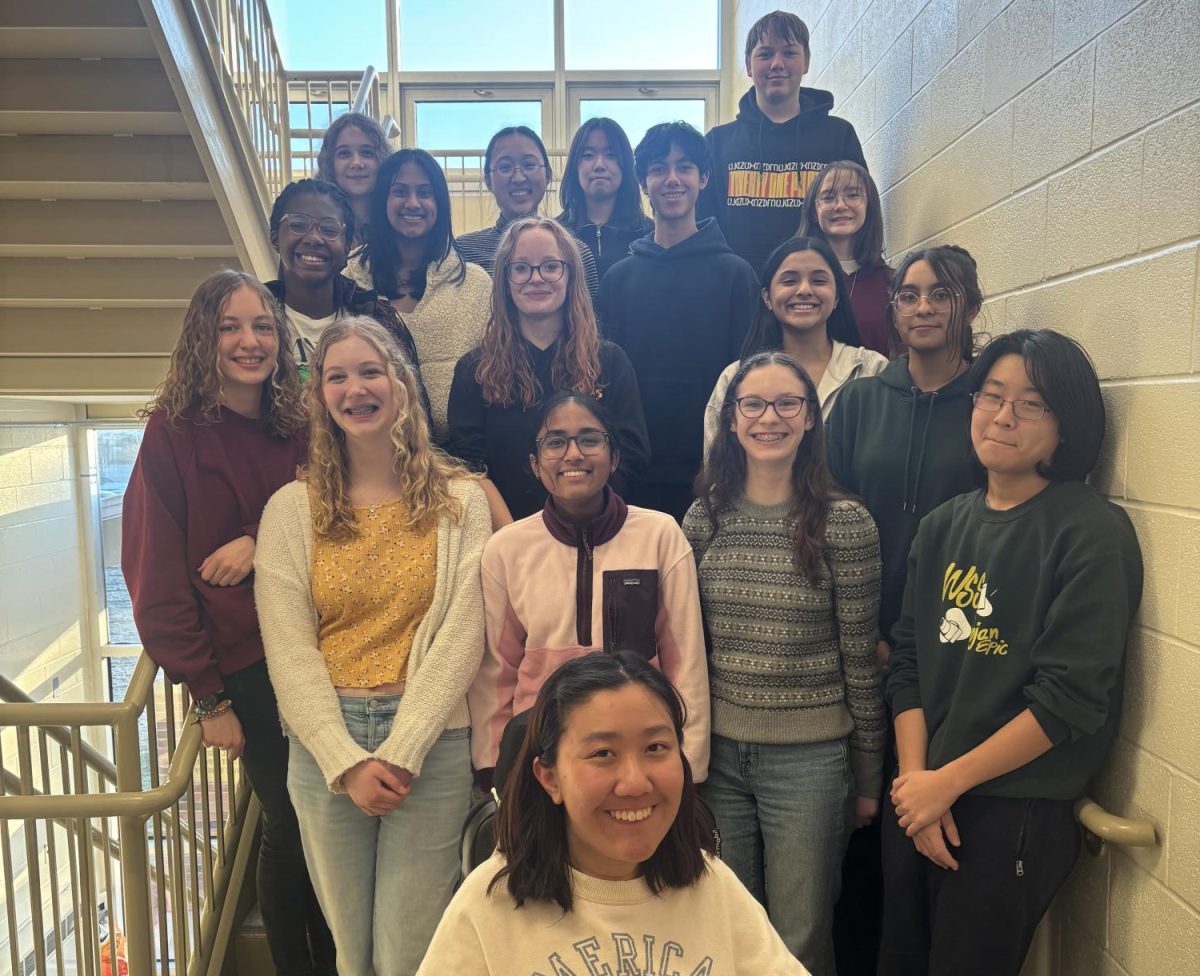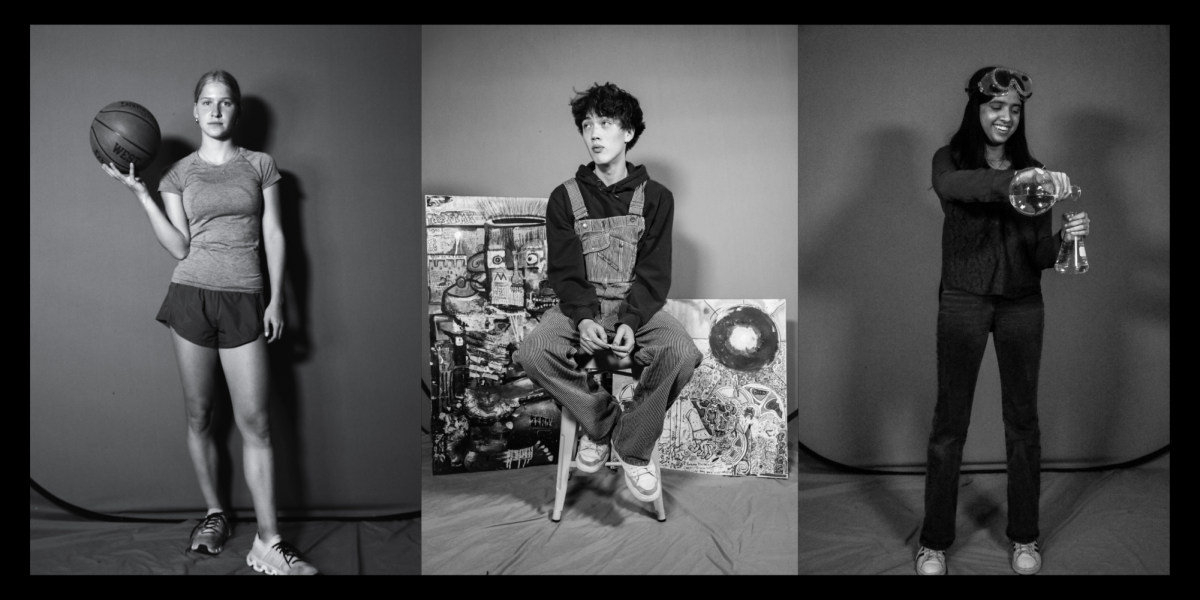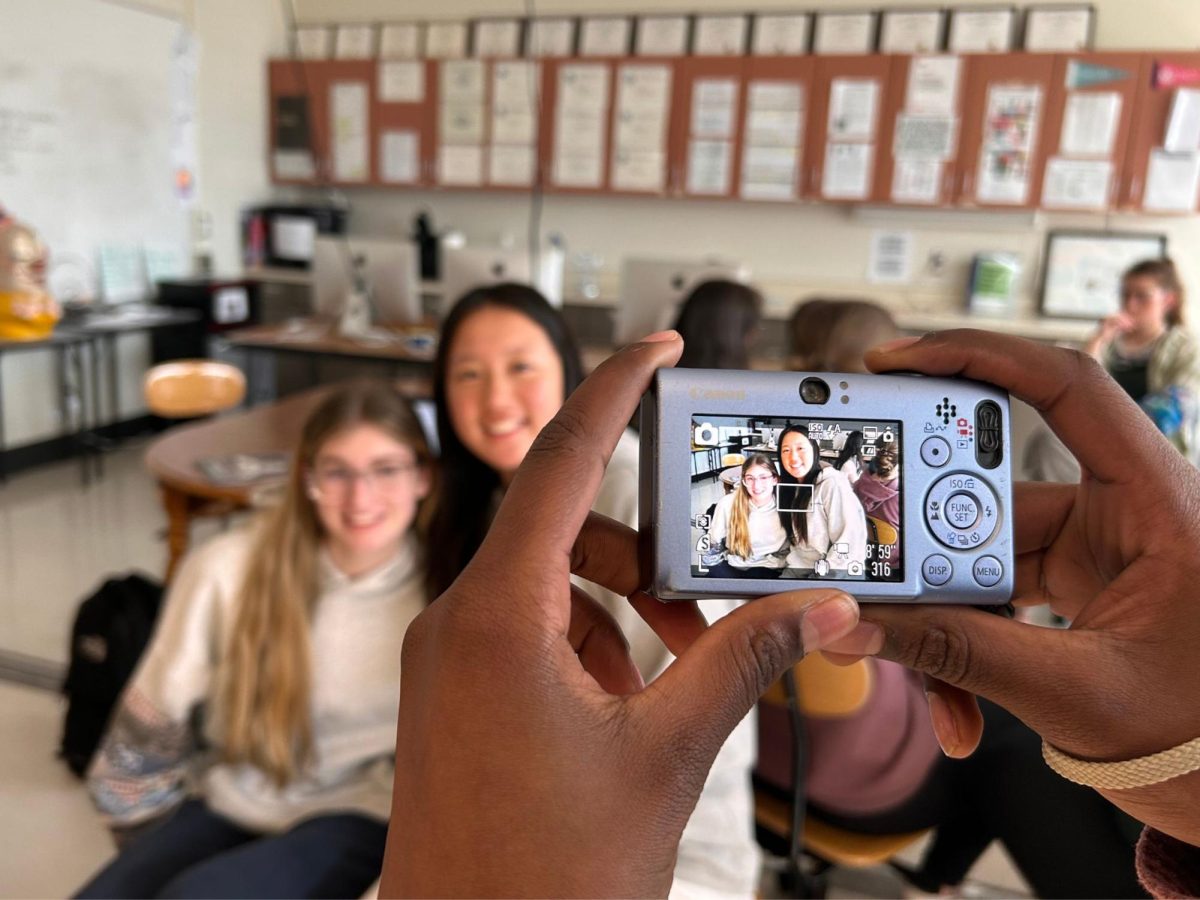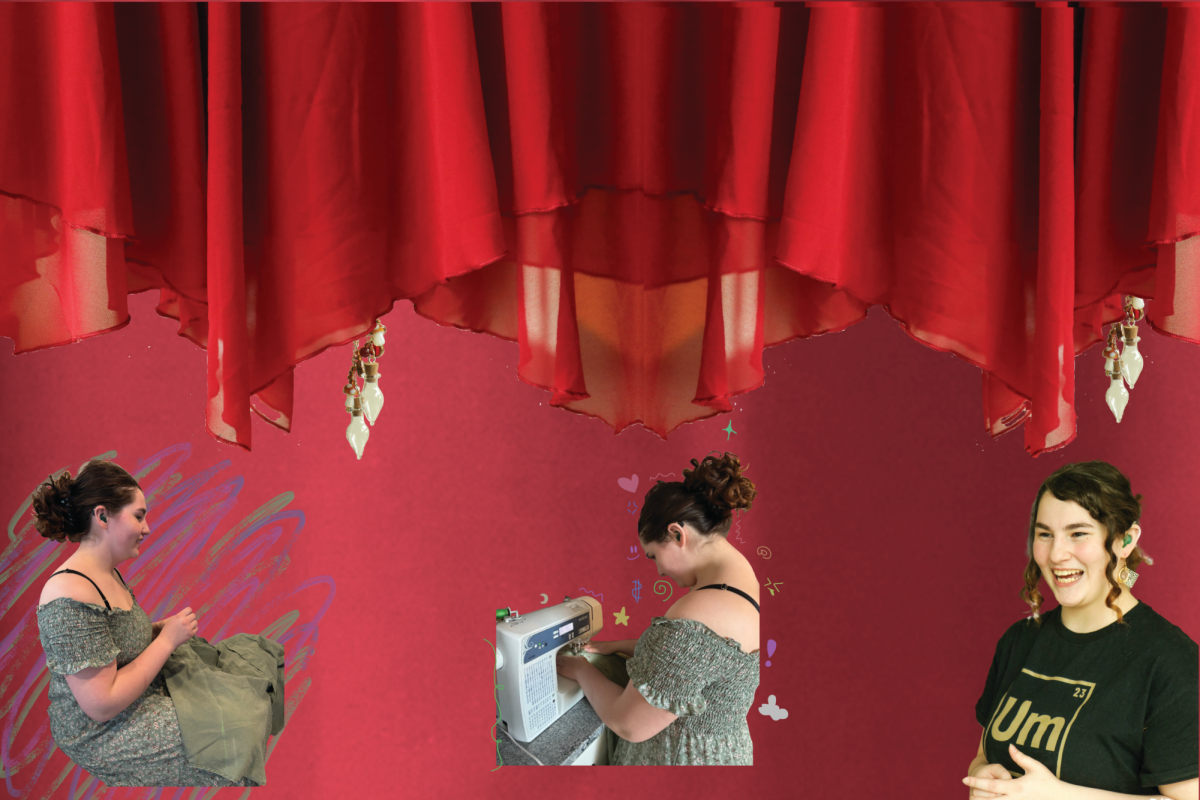With its recent introduction to West, the Banned Book Club aims to explore untold stories and raise everyone’s voices through literature.
One of the club’s founders, Alice Gooblar-Perovic ’27, reflects on how she came up with the idea of the club.
“I was hanging out with my mom, and she was telling me about the new [book] laws. [Senate File] 496 was about to be passed. She was saying [how] upsetting [it is] that people are banning books from high schools, and [how] you’ll not be able to access some books in your school,” Gooblar-Perovic said. “I thought it would be cool if I could find a way to access [them].”
Senate File 496 is a law recently passed by the Iowa legislature, banning books that have explicitly sexual content. Although the law has been modified to make it possible for students to read certain books, it holds strongly to their material and briefly made it impossible for the club to get approved or sponsored by a teacher last year.
Co-founders Gooblar-Perovic, Lydia Cruce ’27 and Aahana Gupta ’27 were ecstatic to have their new teacher sponsor, Traci Burns, make it official.
“Last year, [many] laws were passed banning books, like Senate File 496,” Cruce said. “We thought that we [didn’t] want this information to be taken away from people who need it or want to read it. We don’t think […] that [information should be limited], so we started [the] Banned Book Club as an unofficial club last year.”
Gupta explains how a regular club meeting goes.
“We usually start with a game, then transition to a few [discussion] questions related to the section we read that week,” Gupta said. “We get into small groups [at the beginning], and [bigger] groups at the end. And of course, we pass out snacks!”
The club has read a total of three books so far, dating back to last year.
Their first book was “The Perks of Being a Wallflower”, following Charlie, a teenager with a lot of trauma he has yet to unpack and understand, going through high school with a great group of friends and learning more about himself. Though it fosters many typical teen concepts, the writing prose seems to differentiate itself from many other books.
One of Cruce’s favorite reads was the club’s second book.
“The second book we read this year was ‘Fahrenheit 451’, and that was a great book to start with because it’s about book burnings,” Cruce said. “The main character is a firefighter, but firefighters in this society don’t do what we would think firefighters do. We think, ‘Oh, firefighters, they help save us. They put out all the fires for us.’ But in this society, the firefighters are meant to burn the books. It deals with censorship and talks about rebellion, which can be applied to real life.”
Their current read is “The Handmaid’s Tale,” by Margaret Atwood. This book has a futuristic society devastated by climate change and an increasing rate of infertility, so it forces its fertile female population to become handmaids to their leaders and provide them with children to develop their society.
“I am very intrigued by the perspective of a woman [who], in society, [is] not given a name or a voice. I feel like that can be translated to real life, but it’s not as direct. It’s not like we have women being made into handmaids in our society. But [some women] have a harder time since they are always told they are inferior, and they’re always told what to do by men,” Cruce said. “We are progressing, but there are [many] things that could potentially happen. Dystopian novels [serve] as a warning. This] is the author’s way of telling us, ‘This is something I could see happening, or something similar I could see happening in our society.’ We can make sure it doesn’t happen.”
The club is holding a book drive from Feb. 17 to March 14 in the school library and commons, accepting used — yet undamaged — books that could find better homes in bookstores, libraries, or another person’s shelf. Through the drive, the Banned Book Club hopes to expand literature through other legal loopholes.
Many underestimate how many laws and bills are passed annually and how much they affect certain environments — especially in more liberal schools and environments.
“We like to think of schools as a free space,” Gooblar-Perovic said. “But when you think about it, and when you go through these laws, you realize [schools are] cutting back on a lot of things.”
Gupta agrees, noting the difficulties in starting the club.
“They keep lots of books out of [the] libraries and classrooms,” Gupta said. “We’ve had problems with admin setting it up and getting permission for our club and the books we read.”
However, the club did get to be at the club fair this year, which excited the leaders greatly as they were given mixed messages about whether they could attend.
“We thought we weren’t going to be able to do it because the district told us that it was too risky. But then they changed their mind, and they said [we could have] a teacher sponsor, as long as our first book [wasn’t] banned in Iowa,” Gooblar-Perovic said. “It was a whirlwind of a day. We made this poster and left everything at my house, and then, maybe [first] period before the club fair, they’re like, ‘Oh yeah, you can do it.’ So I sprinted to my house, got the poster, [and] ran back.”
This didn’t mean they were completely off the hook since they did experience struggles from getting approved to knowing what they could read without getting disbanded. There were also disagreements about what was best for the team.
“Anytime you lead a club with [others], [you will] have disagreements. It’s always about bouncing back and making sure that you [can] agree and compromise on things, and … you’re able to decide on a time and get things done,” Cruce said. “There are challenges, but I think it’s the way you overcome them that matters. As long as you’re sticking together, you should be okay.”
“I was worried [that] we would have low attendance and that it would be awkward for us to lead the club [if we didn’t have enough members],” Gupta said. “But neither of those [were] issues, and the club has been running smoothly.”
Gooblar-Perovic mentions an air of excitement among the members, especially with something they are all so passionate about.
“It’s exciting for me when we’re talking about something, and people are [interested] and want to discuss [it]. We get to talk about what these books are about and why people think it’s so dangerous for us to read,” Gooblar-Perovic said. “[The] most fun part for me is just seeing what people think and [knowing] that people do care about things that are going on.”
















